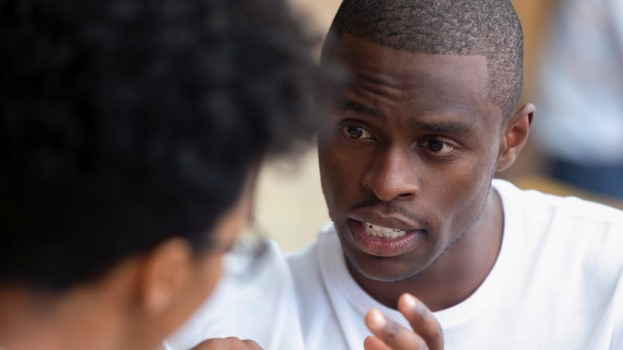How being a good teammate means looking out for your team's wellbeing and safety. It's not just about being a good mate or getting on with the job.

What makes a good teammate? Is it someone who always has your back, who you can rely on? Someone who'll step in to help when needed? A good mate who makes you laugh – or who you can turn to, to get something off your chest?
A good teammate could also support the team by observing and paying attention, noticing when something isn't right – and then speaking up about it, to make sure that the issue doesn't put the lives of the team or anyone else at risk.
Speaking up could mean mentioning it to the manager or supervisor, going through internal reporting channels, sharing concerns with a union, or raising a concern confidentially using CIRAS – we'll keep your identity protected.
It can also be about challenging teammates if they have become complacent about safety and the rules that protect everyone – it gives them a chance to correct the way they are working before it causes an accident. And a good teammate also listens and understands why they are being challenged, welcoming that challenge as a chance to be safer.
A good teammate might feel uncomfortable speaking up – even confidentially – but they know that it is the right choice and by raising a concern they are doing the right thing and maybe even preventing an accident.
Looking out for others
Speaking up might also mean checking in with a teammate who isn't their usual self, or seems more distracted or complacent to safety than usual. Everyone is different, and some will feel more comfortable reaching out and offering support to someone who is struggling than others.
This is about being there to listen, really listen, when someone needs to talk. And it's about noticing that your teammate is struggling even though they might be trying to hide how they are feeling, and then asking discreetly, 'Are you ok?'
Not everyone wants to talk and that's ok. Letting someone know you are there means they might open up later when they are ready. If they seem reluctant to talk in that moment, you could reassure them that you are always happy to talk later.
Don't be afraid to ask twice! Whether it's a simple, 'Are you sure you're ok?' or catching up with them a while later, this shows you are genuinely interested. If they decide to speak to you, empathise and express concern but refrain from giving advice.
Showing up as someone who listens can make a difference and show others they are not alone. If you do listen, listen fully in the moment. Put judgement aside, treat the person with respect and dignity, and keep an open mind – give them space to talk.
Speaking up for others
If they have worries about safety, or team or working culture, you could remind them about the reporting channels available, including CIRAS.
Alternatively, you can raise concerns through CIRAS about issues that may not directly affect you. If you see something affecting a teammate's ability to do their job safely – whether it's having the wrong equipment, not enough people to carry out a task, or someone being ignored or treated differently from the rest of the group – then it is important for the team to address this.
You can also raise your concerns through CIRAS for a company you work with that isn't your employer, for example if you see a contractor on your work site having issues.
So... are you a good teammate?
Tags
- Culture
- Health and Wellbeing
